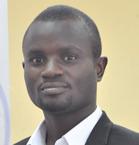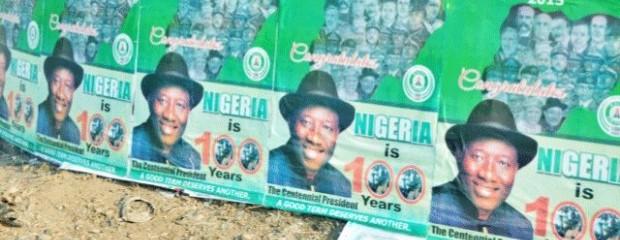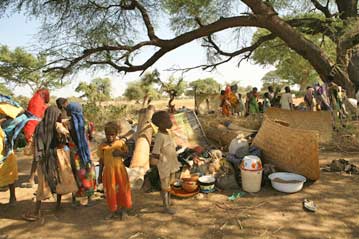Amnesty and Disarmament, Demobilization and Reintegration for Boko Haram? – By Tarila Marclint Ebiede

 The Nigerian Northern Elders Forum has asked President Muhammadu Buhari to grant amnesty to Boko Haram members. This has generated resentment among many Nigerians. Mrs. Obiageli Ezekwesili, former cabinet member under President Obasanjo and co-leader of the BringBackOurGirls movement, has said “Never” to amnesty for Boko Haram. These two extremes represent the views held by Nigerians when policy makers suggest peace talks with Boko Haram members. But is this all that exists when we talk about amnesty and DDR for non-state armed groups?
The Nigerian Northern Elders Forum has asked President Muhammadu Buhari to grant amnesty to Boko Haram members. This has generated resentment among many Nigerians. Mrs. Obiageli Ezekwesili, former cabinet member under President Obasanjo and co-leader of the BringBackOurGirls movement, has said “Never” to amnesty for Boko Haram. These two extremes represent the views held by Nigerians when policy makers suggest peace talks with Boko Haram members. But is this all that exists when we talk about amnesty and DDR for non-state armed groups?
Nigerians are fed up with what they think is a campaign of senseless killings. But to Boko Haram, mass abductions and killings are logical strategies used to pursue their agenda. To Nigerians, it is wrong to forgive those who perpetuate such heinous crimes against humanity. Nigerians, even those who are in favour of amnesty for Boko Haram, also look at the Niger Delta amnesty when thinking about its application in the North East. The assumption is that amnesty means pardoning combatants and empowering key leaders through state patronage and rewarding ordinary fighters with monthly stipends. This assumption is equally wrong. The logic of amnesty and DDR in the Niger Delta can only be understood through the politics of oil in Nigeria (a complex relationship which is a subject on its own.)
There is a school of thought that argues that Boko Haram is rooted in Islamic ideology. This view presents Boko Haram as a homogenous group and that its members share a common agenda. Muslims who oppose the group have named it a “godless” group and “force of evil”. Irrespective of the ideological leaning of Boko Haram, it is short-sighted to deny the fact that Boko Haram was incubated in swaths of ungoverned spaces in the periphery of Nigerian territory. It would also be wrong to deny the political origins of the group.
In pursuit of its agenda, Boko Haram has engaged in mass killings, mass kidnapping and went as far as establishing a form of rebel governance in parts of territories where it operates. The group may have used forced conscriptions to recruit members. It is worrying that little attention has been paid to the missing men in those villages. Even where hostages have been rescued it has always been women and children – where are the men? Many of these men were killed; some may have joined Boko Haram as a strategy to survive the group’s brutality.
Local militia groups have also emerged to defend communities against Boko Haram. The Civilian Joint Task Force (CJTF) as it is called is a direct response to the inability of the state to provide security for communities. The CJTF worked with the military in their bid to fight Boko Haram. It has emerged as a non-state armed group in support of the state. Although it is seen as a positive force, the entry of another non-state armed group into the picture raises more questions and increases the likelihood of further conflicts in the area.
Like most violent conflicts, the insurgency in the North East is dynamic; adding new layers and narratives as the violence progresses. In the North East, Boko Haram is transforming itself from a Nigerian group to the “˜Wilayat Gharb Afriqiya’ (Islamic State of West Africa). The swearing in of President Buhari has also attracted renewed interest by the United States. Although Nigerians should welcome support to fight Boko Haram, we need to recognize that the transformation of Boko haram into Wilayat Gharb Afriqiya and active participation of Western forces may attract more foreign jihadists and escalate the situation in the region.
The complexity of the insurgency and the heterogeneous nature of non-state armed groups in the region demand that the state should apply a mix of both military and political solutions to the crisis. While the military onslaught continues, I will suggest that the government should consider the application of amnesty and DDR for all non-state armed groups in the North East.
Offering amnesty and applying a DDR will demonstrate the government’s commitment to finding a democratic solution to the insurgency. It demonstrates to the Nigerian members of the fighting group and local communities that the government may be willing to provide a more conciliatory solution to the conflicts. This approach will create an opportunity for those who may have joined Boko Haram through forced conscription and as a survival strategy to desert the group. It will also enable the government to disarm and demobilise the Civilian JTF.
The most daunting challenge will be the task of reintegrating those who choose to accept such a peace offer. I suggest that reintegration should be designed to reflect the context of the conflicts. One issue with several reintegration programmes is that it targets ex-combatants without addressing the issues in communities impacted by conflicts. This should not be the case in the North East. Instead, a reintegration programme should be design based on the inputs of community leaders which include religious leaders, traditional rulers, politicians, women’s groups, and other groups in communities.
The question of justice is also likely to be raised (and it already has by those who oppose the use of amnesty.) I propose that the government, working together with civil society organisations, should apply transitional justice instead of solely relying on the criminal justice system. The Rwandan gacaca courts come to mind here. It would be disingenuous to argue that we can completely heal the wounds of bruised souls through some form of transitional justice, but this process may lead us to the truth and begin the long haul leading to peace.
In order to kick start a peace process, the Nigerian government must think beyond a linear military confrontation with the insurgents. The Muhammadu Buhari led government must work together with regional stakeholders to regain the trust of communities. To many of us with interests in “˜non-killing’ peacebuilding, the key question is not whether amnesty and DDR should be applied to enable the government achieve this, but how to design such policy to enable the government to achieve the desired outcome – peace.
Tarila Marclint Ebiede is a PhD Researcher at the Centre for Research on Peace and Development. Twitter handle: @TEMarclint
Email: [email protected]






